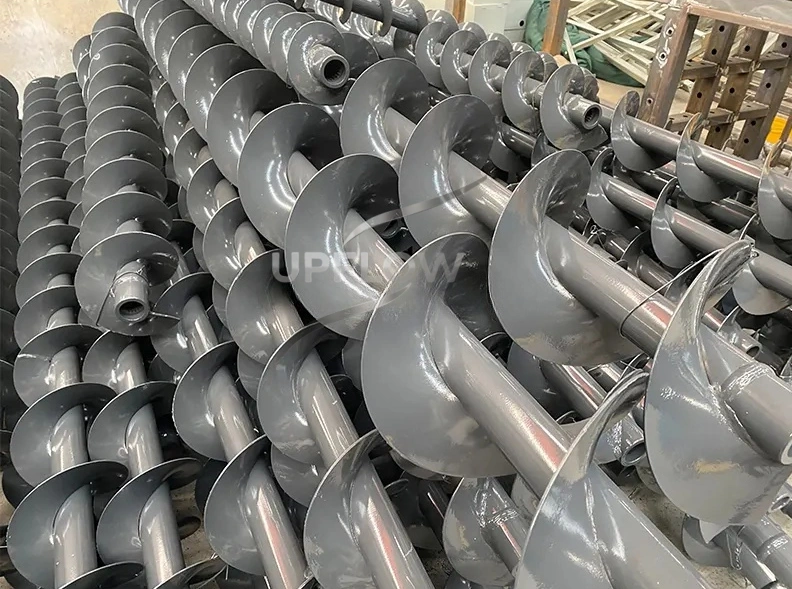
- admin
- Apr 24, 2025
- Screw Conveyor
Screw conveyors are widely used mechanical handling systems designed to transport bulk materials efficiently. Understanding the working principle of a screw conveyor is essential for optimizing material flow and ensuring smooth industrial operations. In this article, we explore how screw conveyors work, their internal structure, and their industrial applications in sectors such as agriculture, food processing, mining, and chemical production. Whether you are designing a new system or improving an existing one, this guide will help you gain key insights into screw conveyor functionality and benefits.
What is a Screw Conveyor?
A screw conveyor is an industrial material handling device used for transporting powders, granules, and small bulk materials. It operates by rotating a screw blade to move materials through a fixed trough or tube, widely used in food, chemical, agriculture, and construction industries.
Working Principle of Screw Conveyor
The core component of a screw conveyor is the screw blade, which is driven by a motor to rotate. The material moves along the conveyor under the combined action of gravity and the blade’s pushing force.
Main Components
✅ Screw Blade: Moves the material forward
✅ Trough/Pipe: Contains and guides the material
✅ Motor & Reducer: Provides rotational power
✅ Bearing Support: Ensures stable operation
Conveying Methods
Horizontal Conveying: Ideal for short-distance transport
Inclined Conveying: Suitable for moderate height differences
Vertical Conveying: Designed for significant height lifts

Industrial Applications of Screw Conveyor
Food Industry
Use Case: Transporting flour, sugar, milk powder
Advantage: Hygienic design, enclosed to prevent contamination
Chemical Industry
Use Case: Handling plastic pellets, chemical powders
Advantage: Corrosion-resistant materials, suitable for high temperatures
Agriculture Industry
Use Case: Conveying grains, animal feed
Advantage: Efficient transport, reduces manual handling
Construction Industry
Use Case: Moving cement, lime, sand
Advantage: Enclosed transport reduces dust pollution

Conclusion
With its simple structure, high efficiency, and strong adaptability, the screw conveyor is an essential material handling solution across multiple industries. Choosing the right screw conveyor type (such as U-type, tubular, or shaftless screw conveyors) can help optimize production and improve efficiency.
For selection advice or customized solutions, feel free to contact us!
